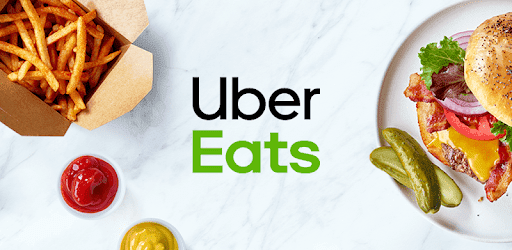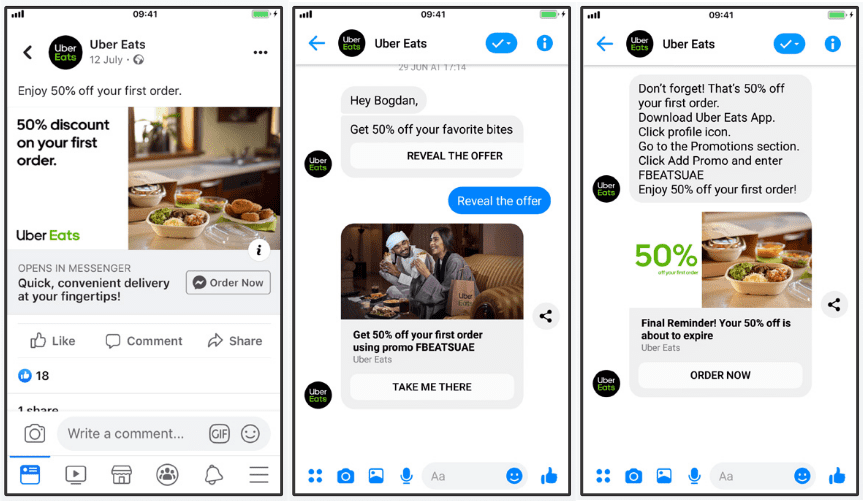How Uber Eats UAE Boosted Sales With Relevant Reminders on Facebook Messenger | Facebook
More than ever, online marketers have more reasons to implement messaging technology to engage their customers. This is especially true for those in e-commerce and online retail sales. Apps like Facebook Messenger are key to increase sales.
Research data continue to show us that time spent on messaging apps is constantly on the rise, with no end in sight. Dark social platforms such as messaging, email, and private browsing account for almost 70 percent of online referrals when it comes to sharing.
The usage and performance of these platforms are not easily accessible, let alone measurable, but make up enough of a proportion of online interaction for us to take notice.
Facebook’s Business on Messenger allows businesses to reach out to customers through its popular messaging app. Consumers can opt to receive information about their orders through Messenger, using the app to directly contact the online retailers for product information and get a speedy reply.
Also, Facebook has been processing peer-to-peer payments for a couple of years already, having first integrated this feature into Messenger back in 2015.
In this case study, we’ll delve into how Uber Eats UAE used ads that click to Facebook Messenger to boost sales and also encourage new sales by customers who make their first order, send them timely reminders, and then re-engage, resulting in 4X more purchases than a campaign that did not use Messenger.

PROBLEM
Uber Eats in United Arab Emirates wanted to increase the number of first-time orders among new customers by using a coupon code to encourage them to try the food delivery service.
SOLUTION
Uber Eats wanted to measure the impact of using Messenger to drive first-time orders among brand new customers. To test this, the team used ads that click to Messenger and a bot for Messenger to open up direct conversations with potential customers and stay at the top of their minds. Uber Eats set up a split test using two campaigns: a control campaign using link ads and the test campaign using ads that click to Messenger.
Both campaigns had identical creative, targeting and budget, and both offered a 50% discount coupon for customers to use on their first order. The key difference: the control campaign took people directly to the app, while the Messenger campaign delivered the coupon to customers directly in Messenger.

Collaborating with Facebook Marketing Partner BrandBastion, Uber Eats developed a re-engagement bot for Messenger that would send timed, automatic messages to customers who had clicked on the ads and already had open conversations, reminding them to use their coupon.
Opening up one-to-one customer conversations within Messenger gave Uber Eats a powerful, personalized way to reach customers at any time. Additionally, customers could easily navigate back to the coupon link in their inbox whenever it was convenient for them.
Uber Eats configured the campaigns using Smartly.io's Automated Ads and Image Templates, and set up a Facebook split test in Smartly.io to compare the impact of the Messenger campaign to the control campaign.
RESULT
The decision to test ads that click to Messenger resulted in more first-time orders and overall purchases, and will inform the company’s future advertising decisions. Between June 29–July 15, 2019, the campaign achieved:
- 6X more first orders with Messenger (compared to campaign that did not use Messenger)
- 80% decrease in cost per first order
- 4X more purchases with Messenger
- 70% more app installs
